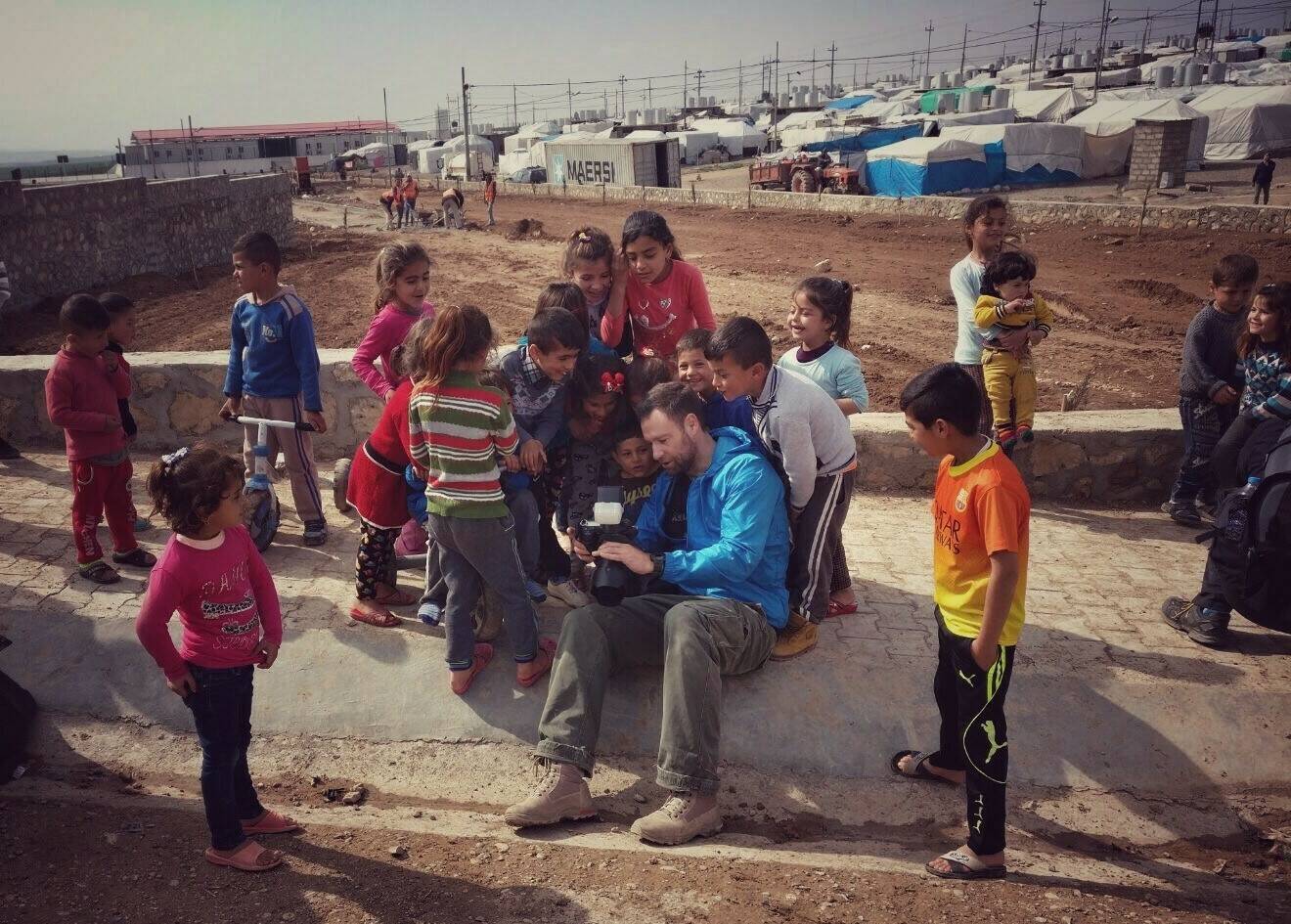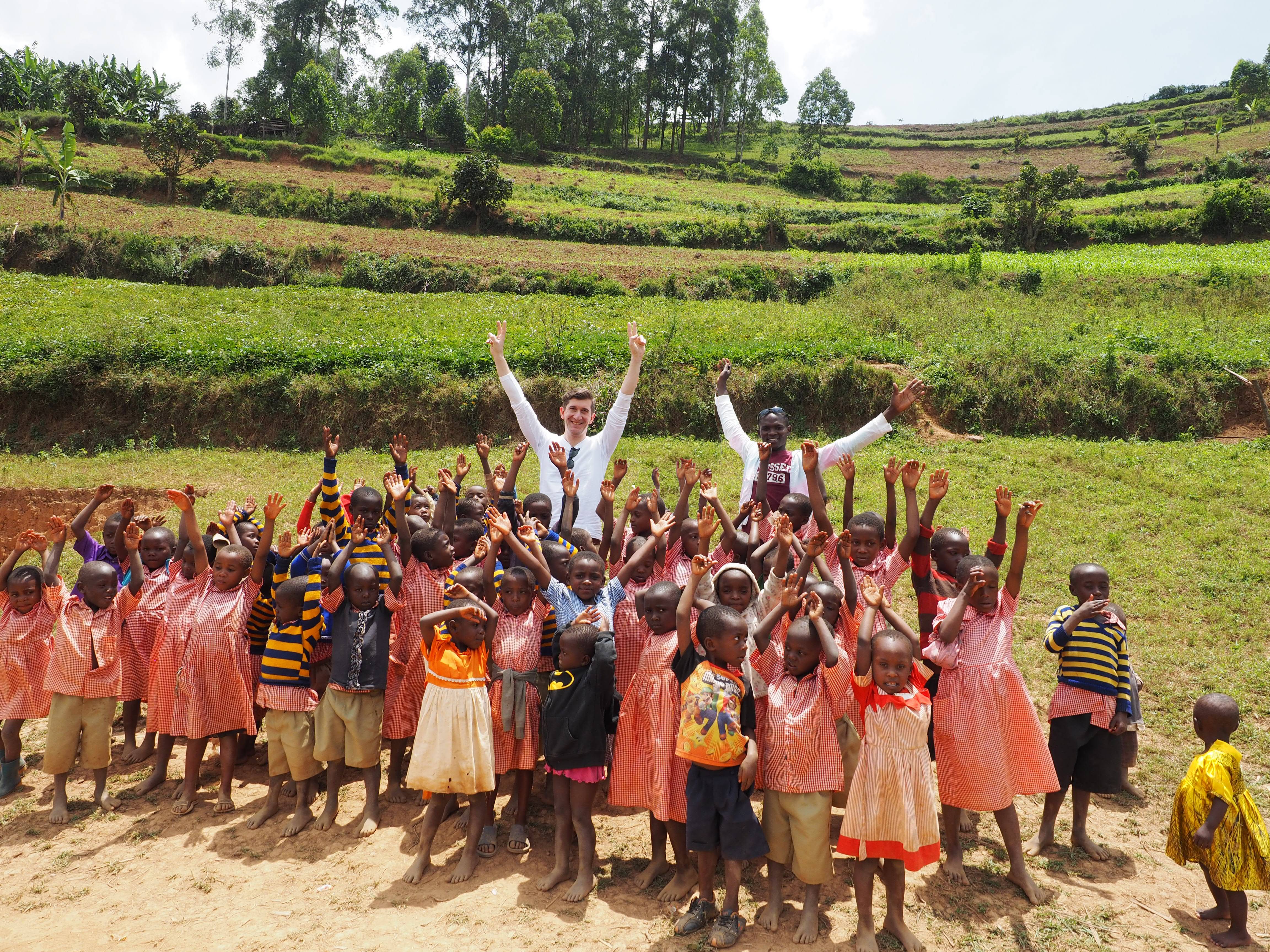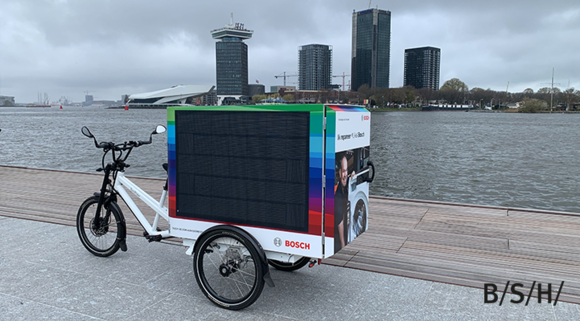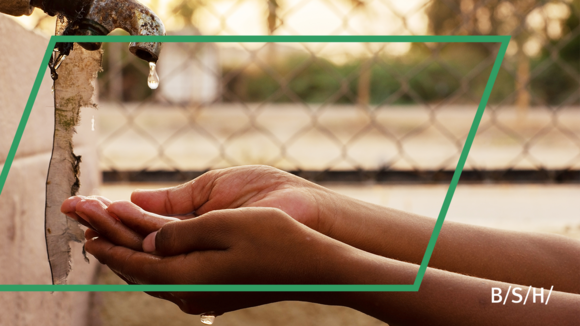Accelerating Innovation with Mentorship – and a lot of heart!
The collaboration between BSH and the United Nation’s World Food Programme (WFP) is taking its first steps. One of the first ways BSH is actively supporting them is by matching start-ups from the WFP Innovation Accelerator with industry experts from BSH. Discover how our first four BSH mentors are volunteering their free-time, skills and innovative spirit to help achieve #ZeroHunger.
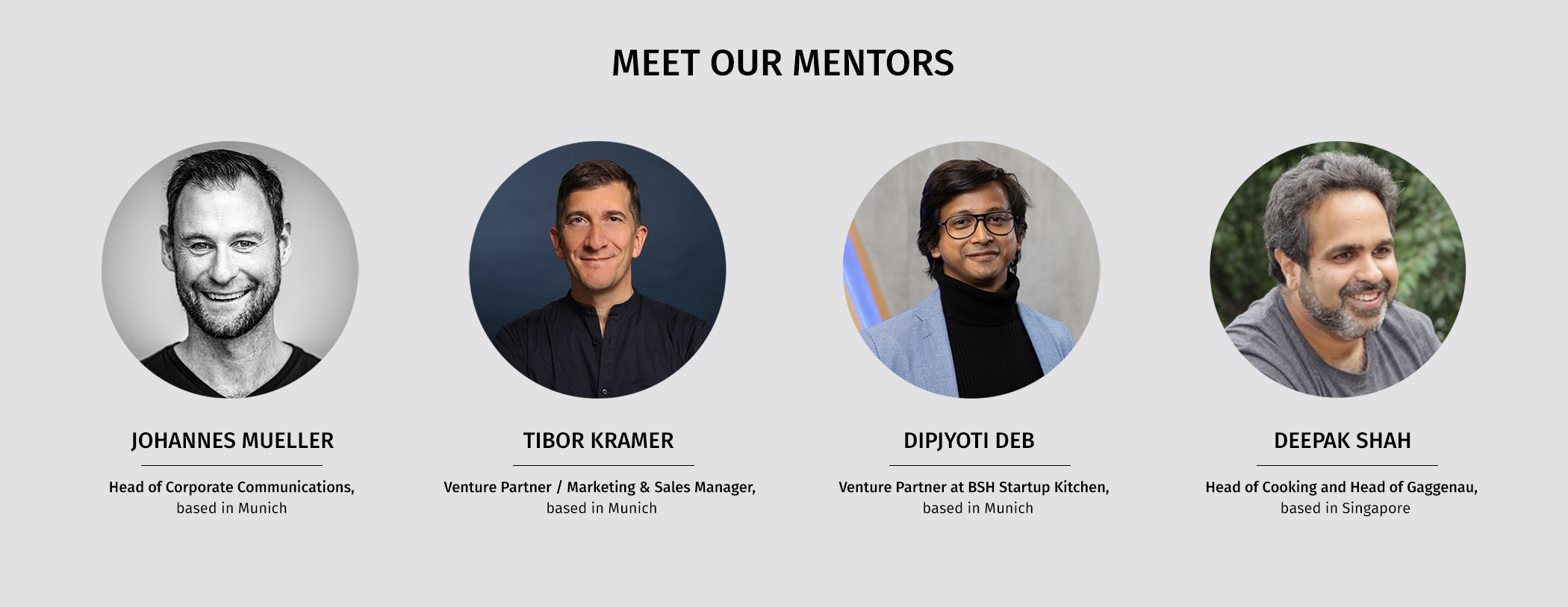
The WFP mentors
Why did BSH team up with the WFP and its Innovation Accelerator?
Our success is their success
BSH achieved the highest turnover in its history during the pandemic, in 2020. However, not everyone has been this fortunate, which is why the Board of Management decided to act as a beacon of sustainability and hope for employees by placing even more emphasis on helping those in need.
Improving the quality of life at home – any home
After carefully screening the globe for the most fitting partner, BSH decided on the WFP Innovation Accelerator as their mission is very close to BSH’s purpose of improving quality of life. Furthermore, both organizations work on many similar topics e.g. nutrition, healthy living, and hygiene. Therefore, BSH can offer more than just financial assistance. It can provide expertise where it really matters with its mentors.
Keeping our promises
Finally, this collaboration aligns perfectly with the BSH Board of Management’s promises at the Annual Press Briefing i.e. to invest more in emerging markets and sustainability.
In summary, the WFP is a “perfect fit” because we can bring our purpose-driven passion for improving quality of life to a completely new level, affecting our work and bringing a true spirit of innovation and learning into all parts of BSH.
Johannes Mueller: "We must overcome the idea of a shared value approach on sustainability when we all know that it is all about comprehensive system value. It’s my goal to foster the fundamental three dimensions of sustainability - people, planet and prosperity - at BSH.”
How does BSH as a company and its mentors contribute to the collaboration with the WFP Innovation Accelerator?
Setting them up for success
An accelerator is a structure that helps founders grow in all areas of their business. We, as BSH, are used to being part of mentoring programs within our own successful company accelerators.
We also understand that startups need a lot of input from different people to be successful, as well as guidance to focus their business energy on the right things. For this reason, we can add value by opening the right doors and enabling these startup founders with what we do well.
Deepak Shah: “It seems that in the western or so-called developed world, we have a twisted view of the third-world countries and their potential. The fact is, that a lot of the problems that affect the emerging markets today have their origin in first-world countries and it is truly inspiring to see their innovative spirit and the fantastic ideas they come up with to find a possible solution. The key takeaway is, that we should think differently about what we consider civilized and interact with the local players more seriously”.
Startup savvy and enabling business growth
BSH, as a home appliance manufacturer, can also contribute expertise in the form of scaling businesses and “know-how” regarding marketing and business models. Whether it is manufacturing, the actual products or services – we know how to add more to it and take it to the next level.
Many founders often have a singular focus on their great ideas but are not quite sure how to bring these ideas to life. That is where the BSH enters the game and helps them to see how to make it work.
Dipjyoti Deb: "For a great project, you need three things. Great people, a big problem to solve, and good processes. We should learn to put the people, who would love to solve a problem first and support them with the right processes. When we do this, a lot of things will take care of themselves”.
The reality is that there will always be places where BSH cannot help because we are not on the ground. However, we can help the local businesses with their marketing and business models. Sometimes simple solutions have the biggest impact, so helping them with aspects such as reducing costs, optimizing production, and dealing with import tariffs can make a huge difference.
Tibor Kramer: “I think all of us living in a first-world country have a role and should give back to people less fortunate than us.”
What does this mentorship mean to you on a personal level?
Johannes:
“For me it is amazing to see that the number of BSH employees who want to give something back is growing every day. Having a true impact on our global community and helping people solve their problems is a great experience and allows you to merge your purpose on a personal and professional level. Giving is growing”.
What other projects is Johannes involved in?
Throughout the last decade, he not only shot many documentaries in Afghanistan, Iraq, Mali, Lebanon, and Bosnia, he also organized aid projects for women and children in IDP (Internally Displaced People) and refugee camps, e.g. self-defense training, healthy cooking training, and film and photo workshops for traumatized children.
Johannes Mueller
Deepak:
“People who live there [in Africa] are seen as an opportunity to be exploited, but I see them personally, as the friends and relatives that I grew up with. It is a fantastic alignment for me, personally and for the company”.
What other projects is Deepak involved in?
From 2015 to 2017, he led the bottom-of-the-pyramid innovation activities for BSH in Region Asia Pacific. The modern Chulha was born from one of their initial initiatives, and “I hope its enormous potential is eventually fulfilled. I have been fortunate to be called to advise many organizations in my personal capacity on Unconscious Bias, Diversity, and Inclusion – using my life experiences” says Deepak.
Dipjyoti:
“What I offer them [the startups] is nominal to the amount of recharge I get. I feel like a solar panel being recharged by this Sun and I get inspiration that whatever limitation we have is inside our mind. Look at the people working on these projects who share the same purpose even though they have totally different backgrounds, and this is something we would love to scale and see more of within our organization. It may take some time, but we already see that changes are happening and that the people have the right hearts and minds – and that makes me proud”.
What other projects is Dipjyoti involved in?
Dipjyoti has actively been working in the social responsibility area with a keen focus on education. For example, in Uganda, he experienced first-hand the disparity between what people think the pupils there need and what they actually need. In this case, pupils were not going to school, not for lack of interest or materials, but out of fear for their own safety - as children are often kidnapped on their way to school. To solve this the start-up offers affordable online and local classroom-based education as a franchise model so that the students don’t need to travel. Dipjyoti currently also serves as an advisor for the Swapnopuran Welfare Society in India who improves the lives of poor and marginalized women and children through education, protection, and employment.
Children that are benefited by the Swapnopuran Welfare Society in India
Tibor:
“Being able to help other people grow and to see that even the smallest actions can have a huge impact, ensures that we stay more humble human beings. I know that I’m fortunate to have been born in Germany and having a decent life. It is amazing how dedicated the people on the ground are and how much value something seemingly small can add as a company”.
For example, Tibor helped create a social entrepreneurship model that finances a school with only $2000 and a website.
What other projects is Tibor involved in?
Tibor is currently helping to finance the Good Samaritan Preschool with a tour company called Bunyonyi Cultural Tours in Uganda with his local partner Kenneth Twijukye.
Tibor and the kids from the Good Samaritan Preschool in Uganda
If the collaboration could achieve one thing, it would be having a true impact on our global community inside and outside of BSH i.e. helping people solve their own problems. As Johannes puts it, “at the end of the day, this is all about improving quality of life for us but also for the rest of the world”.
Dipjyoti Deb: “ZeroHunger might look like an impossible task, but who knows, we might reach it sooner than we thought.”


